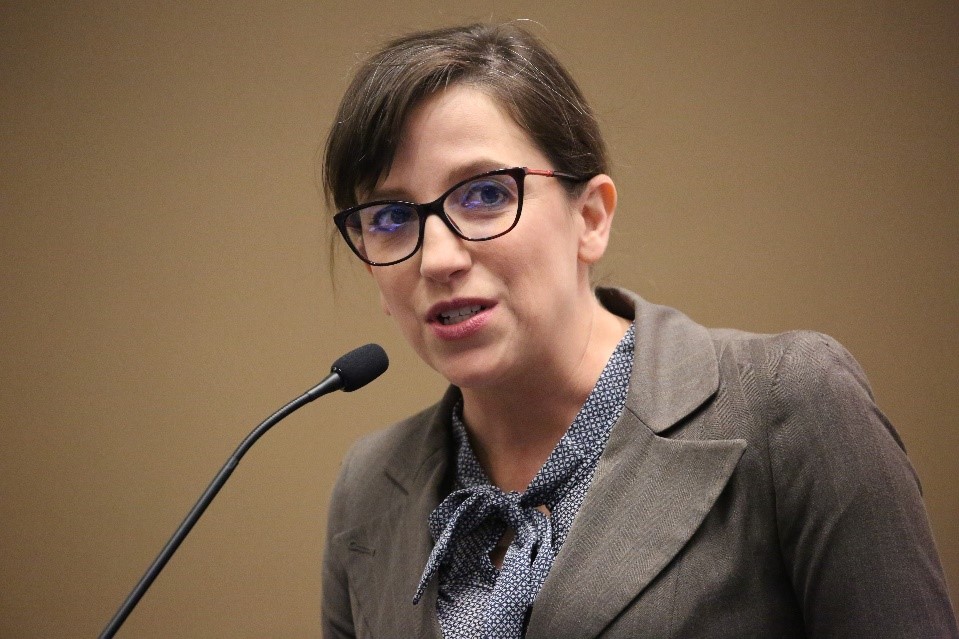Great Plains IDeA-CTR Annual Science Meeting
Our Second Annual Scientific Meeting was yet another opportunity for the Great Plains IDeA-CTR Network to showcase its resources, partners, and researchers. The Annual Scientific Meeting (ASM) brings together researchers (spanning basic, translational and clinical work), university or collegiate educators, administrators, healthcare professionals (e.g., physicians, advanced practice providers and nurses), public health experts, and many more. Over 200 people registered for the event which featured presentations about translating research across the clinical and translational spectrum, a panel to discuss study recruitment and retention, poster presentations, another highly anticipated “CTR Superstar” Competition, and an annual update regarding the resources and research supported by the network. The meeting was an opportunity to bring together folks from all over the country who are interested in the growing field of Clinical and Translational Research (CTR) to network and learn.


Team Science was the theme of this year’s two-day conference, and we were honored to host keynote speaker L. Michelle Bennett, PhD, Director of the Center for Research Strategy at the National Cancer Institute (NCI). Dr. Bennett discussed the importance of multidisciplinary teams as a strong catalyst for translating research. Her presentation, entitled “Team Science for CTR: A marathon not a Sprint,” highlighted the challenges of working within interdisciplinary teams and the characteristics that contribute to successful collaborations. Dr. Bennett indicated that advancing science inherently involves collaborating with experts in other fields and she emphasized the need to establish trust and set expectations within teams. “The idea is to maximize your time researching,” said Dr. Bennett, but by ignoring the interpersonal factors within the team, “you could end up going off the rails and spending more time on personnel issues.”
James Linder, MD, Chief Executive Officer of Nebraska Medicine, also helped us kick off the meeting. Dr. Linder stressed the importance of investing in higher learning. Dr. Linder believes that this investment is what has led to the success we have seen as a nation and has also contributed to science and the world. “The American university is a transformative power in the world,” he said, adding “if we don’t invest in American universities, we are doomed to be on a downward course.”
Both days of the ASM featured breakout sessions. The topics of these sessions were based on a large-scale needs assessment conducted by the GP IDeA-CTR. The sessions focused on 1) clarifying researcher needs to build infrastructure for clinical and translational research and 2) developing action plans to address these needs. These solutions will build an even more sustainable and effective research infrastructure for CTR, and, ultimately, improve the health and lives of residents in our region.

Presentation recordings:
- Welcome and Opening Remarks – presented by Matt Rizzo
- Team Science for CTR: A Marathon not a Sprint – presented by L. Michelle Bennett
- Invited Speaker – presented by James Linder
- KCA Updates and Resources – presented by Matt Rizzo & Core Directors
- CTR Superstar Competition – moderated by Matt Rizzo; presenting researchers Loretta Jophlin, Philippe Malcolm, & Jae Sung Park; paneled by Robert Hinson, Rod Markin, & Michael Yanney
- Community Perspectives on Research Panel (and CTR superstar award announcement) – moderated by Paul Estabrooks; paneled by Chandran Achutan, Matt Beacom, and Sean Navarrette
- Introduction to Breakout Sessions – presented by Paul Estabrooks
- Collaborator of the Year Award Presentation – presented by Risto Rautiainen, received by Jeanette Harder
- Moving Research Along the Translational Spectrum – presented by Sarah Holstein, Aaron Mohs, & Howard Fox
- Summary Remarks – presented by Matt Rizzo
Additional Resources:
- 2018 Great Plains IDeA CTR Scholars
- Great Plains IDeA CTR Pilot Grant Program
- L. Michelle Bennett’s PowerPoint Slides
- Collaboration and Team Science: A Field Guide from the National Cancer Institute (NCI)
